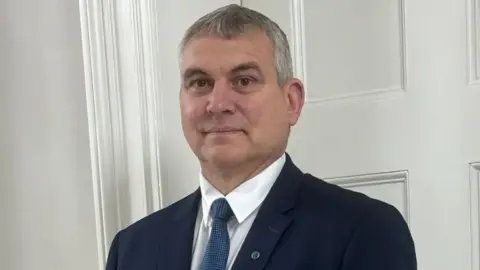The founder of Poundland, Steve Smith, has publicly expressed his regret about not being able to acquire the discount retail chain back after learning of its recent sale. Poundland, which is a well-known name in British retail, particularly for its £1 price point on a wide range of products, was sold to the American investment firm, Gordon Brothers, last week. This sale has raised concerns about the company’s future, including potential store closures and a restructuring of its operations.
Smith began his journey in the retail industry with a humble market stall in Bilston, where he sold various items at the fixed price of £1. In 1990, he opened the first official Poundland store in Burton-upon-Trent, which blossomed into a much-loved and widely recognized brand across the UK. However, in 2006, Smith sold his shares in Poundland for a substantial £250 million, marking a significant milestone in his career. Today, the company operates 792 stores and employs around 16,000 individuals, but the need for change is palpable.
Upon realizing that Poundland was on the market again, Smith stated that he was eager to buy back the business, underscoring his enduring passion for the brand and the people involved in its success. He felt a sense of ownership that goes beyond just financial investment, recognizing the emotional ties and responsibility towards the employees and the concept of the company he initially built. “I would’ve liked to have bought it back because I’m still passionate about the people and the concept,” he reflected.
Smith emphasized his pride in Poundland’s legacy, noting that around 85% of the population had purchased something from the store at some point. However, he also admitted that he felt sadness upon hearing about the impending closure of several stores, with the company indicating that as many as 70 locations might shut down in the near future. In addition, Poundland is working towards negotiating rent reductions with landlords, which could lead to further physical downsizing.
Beyond closures, operational changes are also on the horizon. Smith disclosed that distribution centers located in Darton, South Yorkshire, and Bilston in the West Midlands have been slated for closure as part of the restructuring process. This not only raises questions about the overall business strategy but also leaves many employees uncertain about their job security.
In the wake of these troubling developments, Smith shared his views on pricing strategies, noting that customer expectations have historically been anchored in the £1 price point. While he acknowledged the necessity of raising prices to ensure company sustainability, he believed his approach would have differed. He conveyed that he would have revised the pricing structure to accommodate market changes while maintaining the essence of Poundland’s unique selling proposition.
“I do think it was inevitable, this was going to happen,” he remarked regarding the need for restructuring, relating it to his experiences with fluctuating market prices during his tenure as a market trader. He concluded that although he understood the challenges of pricing, more significant adjustments would have been ideal to better support the business.
As the conversation around Poundland’s future continues to evolve, it’s critical for the new owners to navigate these changes deftly to preserve the brand’s reputation and abide by customer expectations. The discussions emerging from Smith’s reflections on the matter open a broader dialogue on the state of retail and its adaptation to changing economic climates. Smith’s enduring commitment to the company he once built and the people he worked alongside underscores the emotional complexities of corporate transitions in today’s competitive landscape.
In light of the recent developments, further discussions are not only essential for Poundland but also for the broader retail sector as companies adapt to new economic realities while attempting to stay true to their core values.



